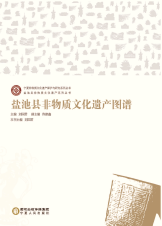
主要责任者: 刘国君
责任方式: 主编
出版者: 黄河出版传媒集团:宁夏人民出版社
出版地: 银川
字数: 260 千字
页码: 1-254
开本: 16
中图分类号: K294.34-64
语种:中
定价:48.00
出版时间:2014-12
丛书多卷书否:是
丛书名:盐池县非物质文化遗产系列丛书
丛书责任者:刘国君
丛书责任方式:主编
书目简介:本册工具书是盐池县非物质文化遗产系列丛书之一,共收录48条词条。
被引频次:4
| 词条 | 盐池县非物质文化遗产图谱 |
| 类别 | 中文百科知识 |
| 释义 |  主要责任者: 刘国君 责任方式: 主编 出版者: 黄河出版传媒集团:宁夏人民出版社 出版地: 银川 字数: 260 千字 页码: 1-254 开本: 16 中图分类号: K294.34-64 语种:中 定价:48.00 出版时间:2014-12 丛书多卷书否:是 丛书名:盐池县非物质文化遗产系列丛书 丛书责任者:刘国君 丛书责任方式:主编 书目简介:本册工具书是盐池县非物质文化遗产系列丛书之一,共收录48条词条。 被引频次:4 |
| 随便看 |
开放百科全书收录579518条英语、德语、日语等多语种百科知识,基本涵盖了大多数领域的百科知识,是一部内容自由、开放的电子版国际百科全书。